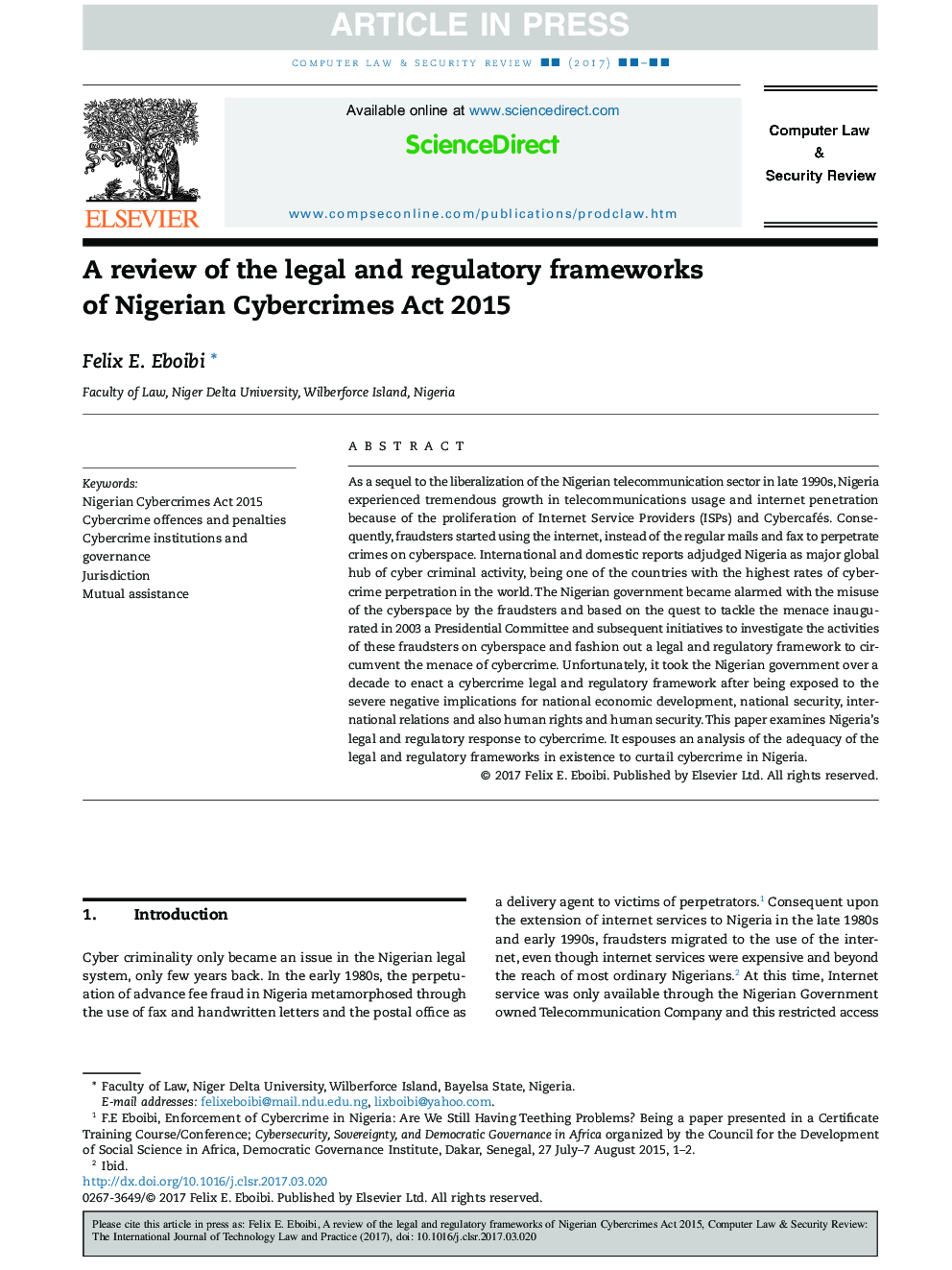| Article ID | Journal | Published Year | Pages | File Type |
|---|---|---|---|---|
| 4957850 | Computer Law & Security Review | 2017 | 18 Pages |
Abstract
As a sequel to the liberalization of the Nigerian telecommunication sector in late 1990s, Nigeria experienced tremendous growth in telecommunications usage and internet penetration because of the proliferation of Internet Service Providers (ISPs) and Cybercafés. Consequently, fraudsters started using the internet, instead of the regular mails and fax to perpetrate crimes on cyberspace. International and domestic reports adjudged Nigeria as major global hub of cyber criminal activity, being one of the countries with the highest rates of cybercrime perpetration in the world. The Nigerian government became alarmed with the misuse of the cyberspace by the fraudsters and based on the quest to tackle the menace inaugurated in 2003 a Presidential Committee and subsequent initiatives to investigate the activities of these fraudsters on cyberspace and fashion out a legal and regulatory framework to circumvent the menace of cybercrime. Unfortunately, it took the Nigerian government over a decade to enact a cybercrime legal and regulatory framework after being exposed to the severe negative implications for national economic development, national security, international relations and also human rights and human security. This paper examines Nigeria's legal and regulatory response to cybercrime. It espouses an analysis of the adequacy of the legal and regulatory frameworks in existence to curtail cybercrime in Nigeria.
Keywords
Related Topics
Physical Sciences and Engineering
Computer Science
Computer Science (General)
Authors
Felix E. Eboibi,
